eCommerce Security: How to Protect Your Store in 2023?
Published By: Rishabh Dhiman Published On: 16 Oct 23 7 Min Read
The eCommerce stores industry encounters a staggering 32.4% cybersecurity threats annually. This statistic highlights the crucial importance of grasping the basics of eCommerce security as well as implementing eCommerce security best practices to safeguard your online store.
This blog will discover the common security threats in eCommerce along with the best practices. At Believ-In Technologies, we are dedicated to safeguarding your digital presence. Our expertise lies in eCommerce website development services that are free from these eCommerce security threats.
So, what are you waiting for?
Let’s get started!
Table of contents
- Basics of eCommerce Security
- What is eCommerce Security?
- Why is eCommerce Security Important?
-
5 Common Security Threats in eCommerce
- Payment Card Fraud
- Phishing Attacks
- DDoS (Distributed Denial of Service) Attacks
- SQL Injection Attacks
- Account Takeovers
- Security Measures to Protect Your eCommerce Site
-
Transaction security in eCommerce
- Secure Socket Layer (SSL) Encryption
- Tokenization
- Regular Security Audits
- Fraud Detection Tools
- Two-Factor Authentication (2FA)
-
Payment security in eCommerce
- PCI DSS Compliance
- Real-Time Payment Monitoring
- Secure Payment Gateways
- Regular Software Updates
- User Education
-
Client server network security in eCommerce
- Firewalls
- Data Encryption
- Access Control
- Regular Backups
- Security Training
- Wrapping It Up
Basics of eCommerce Security
In today’s digital era, online shopping has become the standard, making the security of your e-commerce store a top priority.
Now, let’s explore the basics of eCommerce security, providing you with the necessary knowledge to safeguard your online business.
What is eCommerce Security?
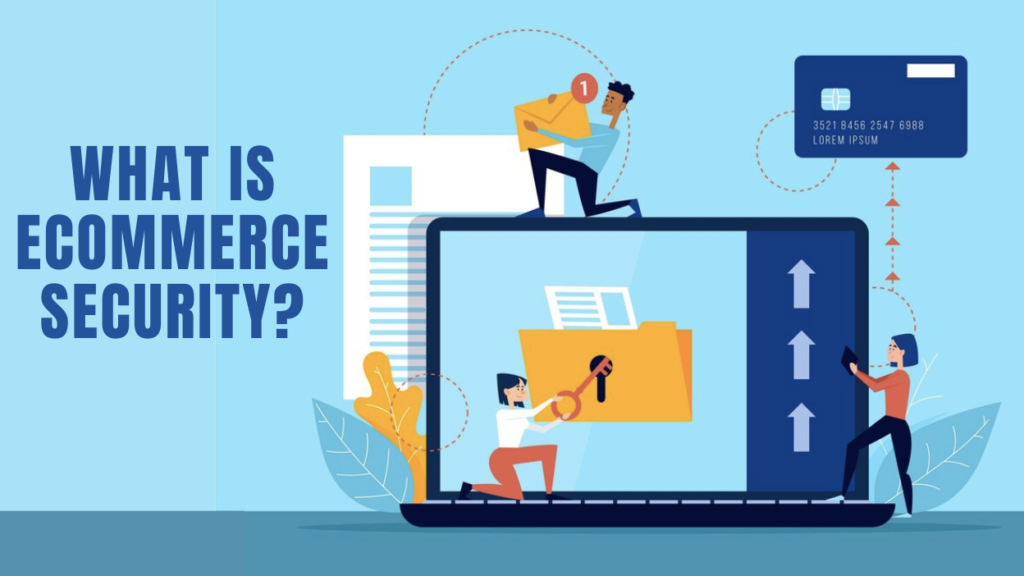
eCommerce security refers to the set of measures and practices aimed at protecting online businesses from various threats and vulnerabilities that could compromise the integrity, confidentiality, and availability of sensitive data as well as transactions. It’s all about safeguarding the online shopping experience for both businesses and their customers.
Why is eCommerce Security Important?
eCommerce security is incredibly important, particularly in today’s fast-changing threat landscape where cyberattacks are becoming more prevalent.
Let’s explore why it’s crucial to prioritize eCommerce security:
- Data Protection: Ensures the confidentiality of customer and business data, including payment information, personal details, and transaction histories.
- Trust and Reputation: Maintaining robust security measures fosters trust with your customers. A secure platform builds a positive reputation as well as encourages repeat business.
- Legal Compliance: Helps your business adhere to relevant data protection laws and regulations, avoiding costly fines and legal repercussions.
- Financial Security: Protects your business from financial losses due to fraudulent activities, chargebacks, or data breaches.
- Mitigating Threats: Guards against various eCommerce security threats, such as phishing, malware, ransomware, as well as hacking attempts.
- Business Continuity: Ensures the uninterrupted operation of your online store, preventing downtime caused by security breaches.
In the upcoming sections, we will explore the common eCommerce security threats as well as offer security measures to protect Your eCommerce site.
5 Common Security Threats in eCommerce
Securing your eCommerce platform is crucial. It’s important to be aware of the common eCommerce security issues that can put your online store as well as customers at risk.
By understanding these eCommerce security threats, you can take proactive steps to safeguard your business.
1) Payment Card Fraud
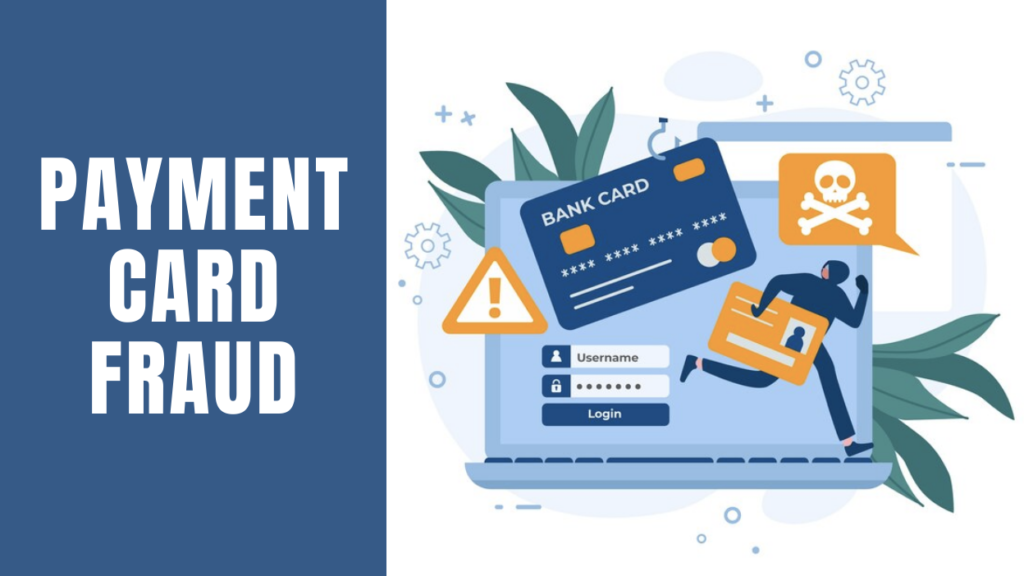
Cybercriminals use a range of tactics, including card skimming and carding, to exploit vulnerabilities and steal valuable payment card information. They frequently make unauthorized purchases, resulting in financial losses for both businesses as well as customers.
To alleviate this threat, online stores should prioritize implementing strong encryption and authentication measures for payment processing. Additionally, regularly monitoring transactions for any suspicious activity can help detect potential fraud.
2) Phishing Attacks
Phishing attacks occur when individuals are tricked into disclosing their personal or financial information by entities posing as trustworthy sources.
Fraudsters commonly employ fraudulent emails or create counterfeit websites that closely resemble legitimate online stores to deceive customers as well as obtain their login credentials and payment information.
To effectively combat phishing attacks, it is essential to educate your customers on how to recognize them as well as respond to phishing attempts. In addition, implementing email authentication protocols and utilizing secure website URLs with SSL certificates can provide added protection against these malicious attacks.
3) DDoS (Distributed Denial of Service) Attacks
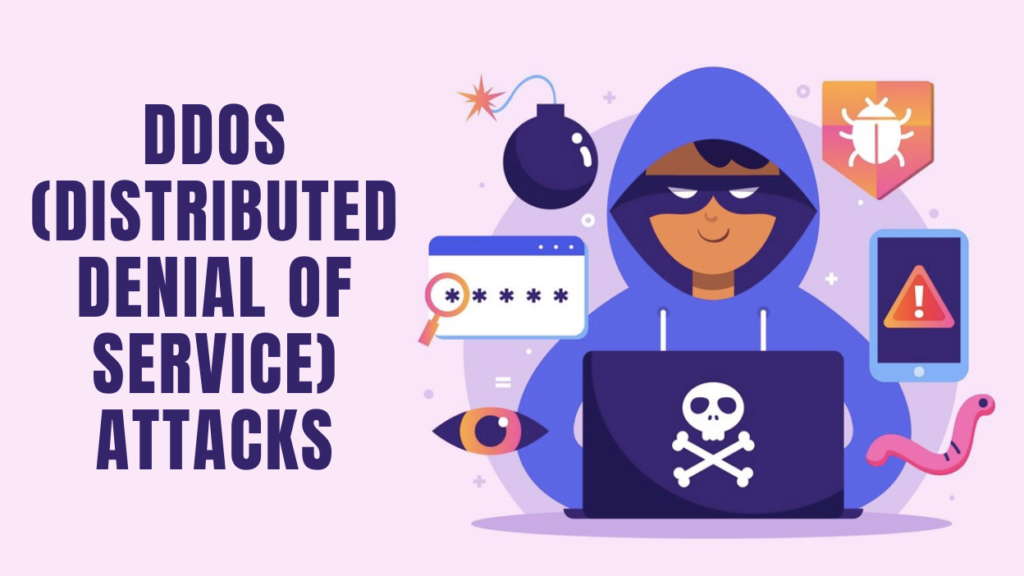
DDoS attacks have one objective: to flood an eCommerce website’s server with an overwhelming amount of traffic, effectively blocking access for legitimate users.
The consequences are double – business operations suffer disruption, as well as it also creates an opportunity for more malicious activities like data theft.
To protect against DDoS attacks, it is important to invest in the best website hosting platforms and utilize intrusion detection systems. These measures can effectively identify as well as counteract these attacks as they happen.
4) SQL Injection Attacks
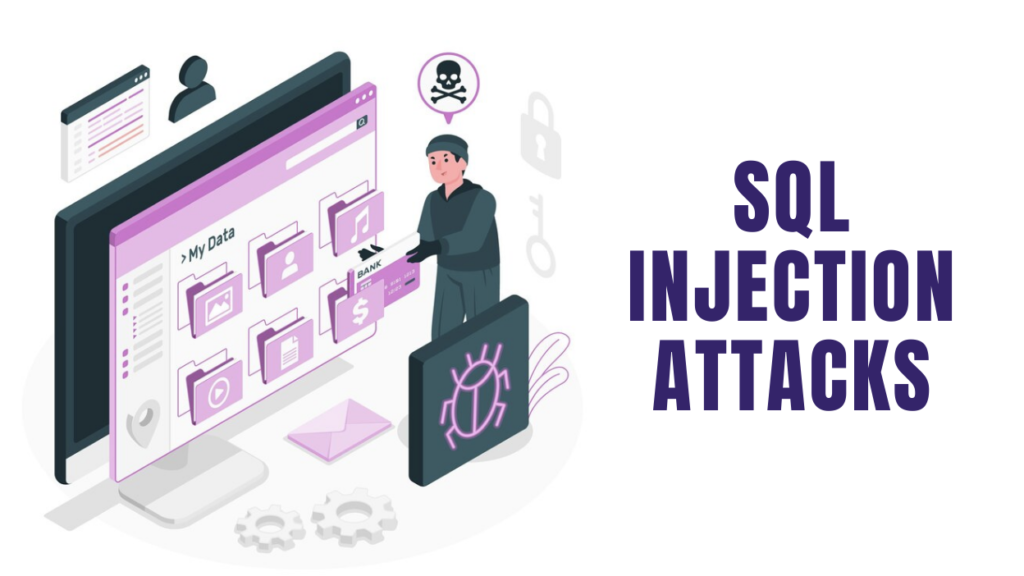
SQL injection attacks specifically target the vulnerabilities present in a website’s database. These attackers manipulate input fields with the intention of gaining unauthorized access to databases and retrieving sensitive data.
As a result, this breach of website security can potentially lead to the exposure of customer information, putting their safety as well as confidentiality at risk.
To protect your website from SQL injection attacks, it is important to regularly update and patch your software.
Additionally, implement security measures such as input validation as well as parameterized queries. These steps will help ensure the safety of your website as well as its data.
5) Account Takeovers
Account takeovers occur when cybercriminals gain access to customer accounts by using stolen credentials. Once inside, these criminals can engage in unauthorized transactions, modify account details, or even steal personal information.
To prevent unauthorized access to accounts, it is recommended to utilize multi-factor authentication, carefully monitor and restrict login attempts, as well as educate customers about the significance of creating strong, unique passwords.
Security Measures to Protect Your eCommerce Site
Protecting your eCommerce website is crucial in today’s rapidly changing digital landscape.
Let’s explore essential elements of eCommerce security as well as provide you with the eCommerce security best practices to strengthen your online store.
Transaction security in eCommerce
The foundation of trust in online commerce lies in secure transactions. To help you strengthen your transaction security, here are five essential tips:
1) Secure Socket Layer (SSL) Encryption

To ensure the security of data exchanged between your website as well as customers, it is important to implement SSL certificates. This provides encryption for sensitive information, protecting it during transactions.
2) Tokenization
To enhance security as well as protect customer payment information, tokenization can be employed. This process involves replacing actual card data with tokens, reducing the risk of exposure.
3) Regular Security Audits
Regularly conduct website security audits to identify any vulnerabilities in your payment processing system. Once you identify weaknesses, address as well as patch them promptly to ensure the security of your payment system.
4) Fraud Detection Tools
Utilize sophisticated fraud detection tools that analyze transaction patterns as well as promptly identify any suspicious activities. This enables the identification as well as proper mitigation of potentially fraudulent transactions.
5) Two-Factor Authentication (2FA)
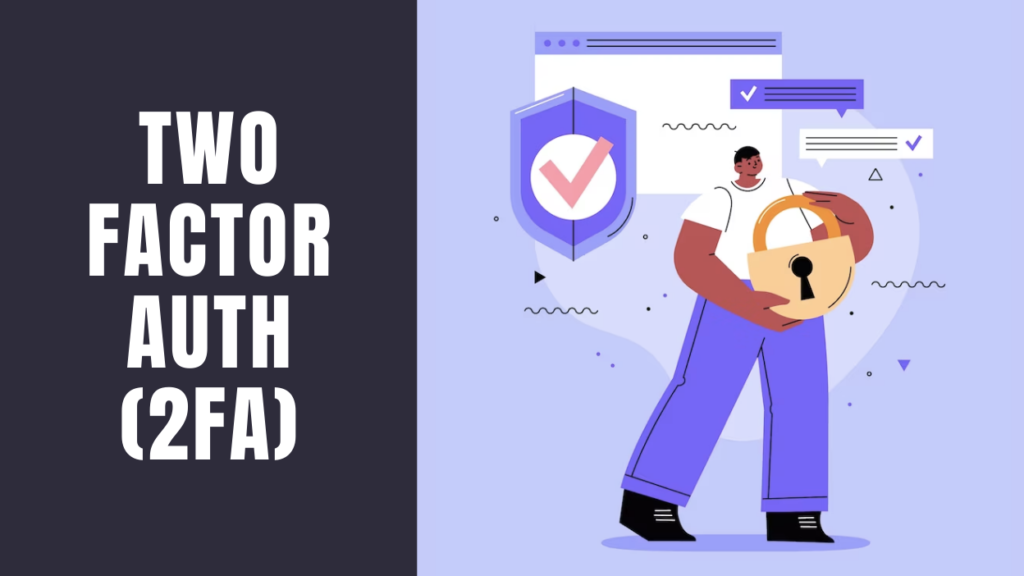
To enhance the security of both customer as well as staff accounts, it is recommended to enable two-factor authentication (2FA). This additional layer of protection ensures that only authorized individuals can access sensitive information.
Payment security in eCommerce
Ensuring payment security is crucial for establishing trust as well as confidence with your customers.
Here are five valuable tips to help enhance payment security:
1) PCI DSS Compliance
To protect cardholder data, it is important to ensure that your payment processing system aligns with the Payment Card Industry Data Security Standard (PCI DSS) requirements. Following these standards will help safeguard sensitive information.
2) Real-Time Payment Monitoring
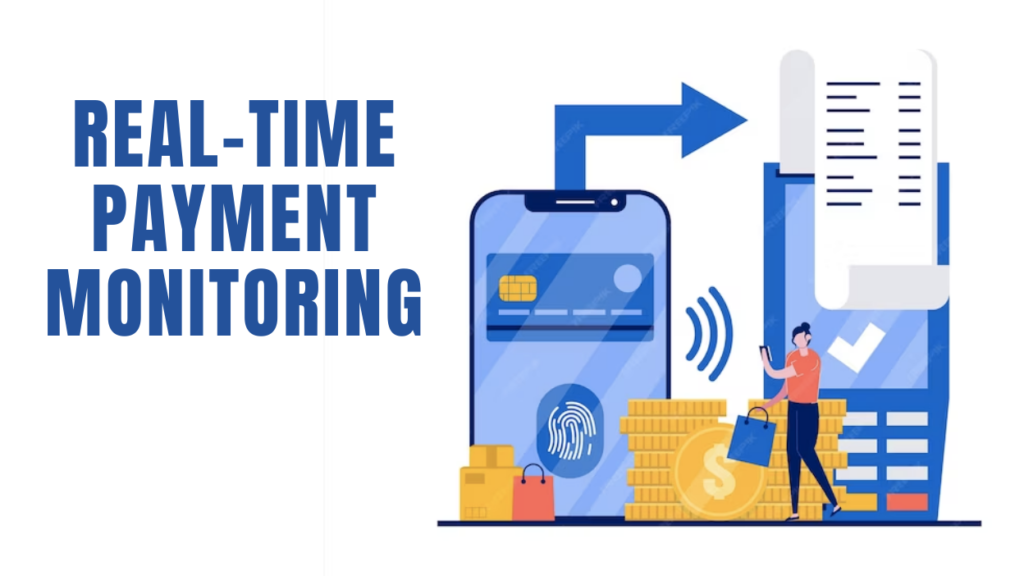
To enhance security as well as prevent fraudulent activity, it is essential to implement a real-time payment monitoring system that can quickly detect as well as block any suspicious or unauthorized transactions as they happen.
3) Secure Payment Gateways
To ensure the security of your payments, it is important to use trusted and secure payment gateways that offer advanced encryption, fraud prevention measures, as well as tokenization services.
4) Regular Software Updates

To ensure the security of your eCommerce platform and payment processing software, it’s important to regularly update them. This helps address any known vulnerabilities or common eCommerce security issues that may arise.
5) User Education
Help your customers protect themselves from online scams by providing education on safe payment practices. Offer guidance on how to identify secure payment gateways, which will help build trust and confidence in your website.
Client server network security in eCommerce
Ensuring the security of your online store’s client-server network is crucial. Here are five important tips to help you safeguard your client server network:
1) Firewalls
Use strong firewalls to filter both incoming and outgoing network traffic, preventing any potential threats or unauthorized access.
2) Data Encryption
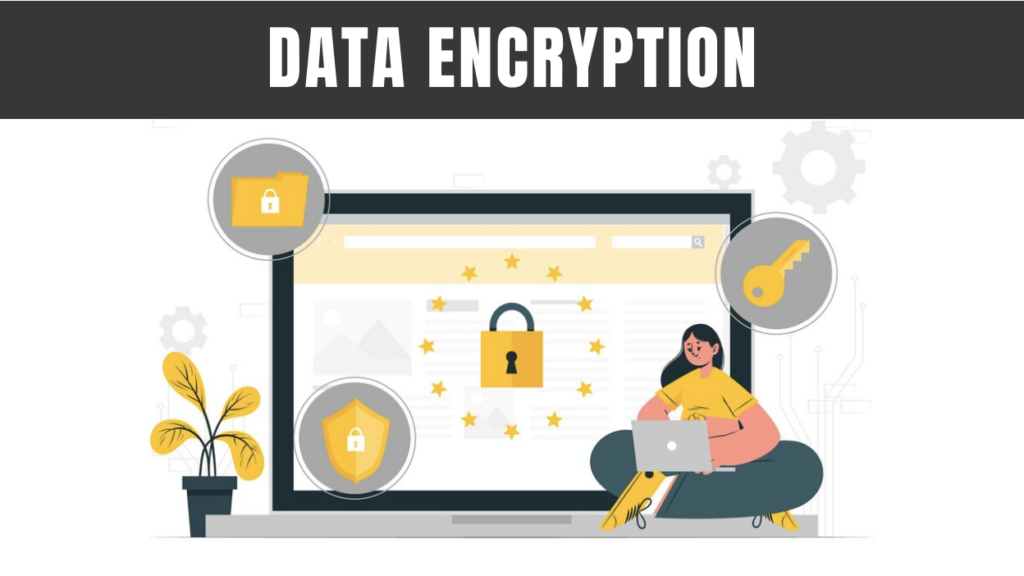
To protect the confidentiality of data, it is important to encrypt all communication between the client and server. Encryption ensures that any potential eavesdropping or interception of data is minimized.
3) Access Control
Implement strict access control policies for your network, granting permissions only to authorized personnel. Regularly review as well as update access levels.
4) Regular Backups

To ensure the smooth operation of your business in the event of a security breach as well as potential data loss, it is crucial to regularly back up both your data as well as website.
5) Security Training
To ensure the protection of your client-server network, it’s crucial to provide your team with thorough training on eCommerce security best practices as well as keep them informed about the latest threats.
Wrapping It Up
At Believ-In Technologies, we understand how vital eCommerce security is for the prosperity of your online business. That’s why we are committed to providing state-of-the-art eCommerce development services that prioritize security.
Ensuring the security of your eCommerce site goes beyond being a requirement; it is a continuous dedication to the safety as well as trust of your customers.
By actively addressing common security threats in eCommerce as well as implementing security measures to protect your eCommerce site, you can flourish in the ever-changing landscape of online business.
